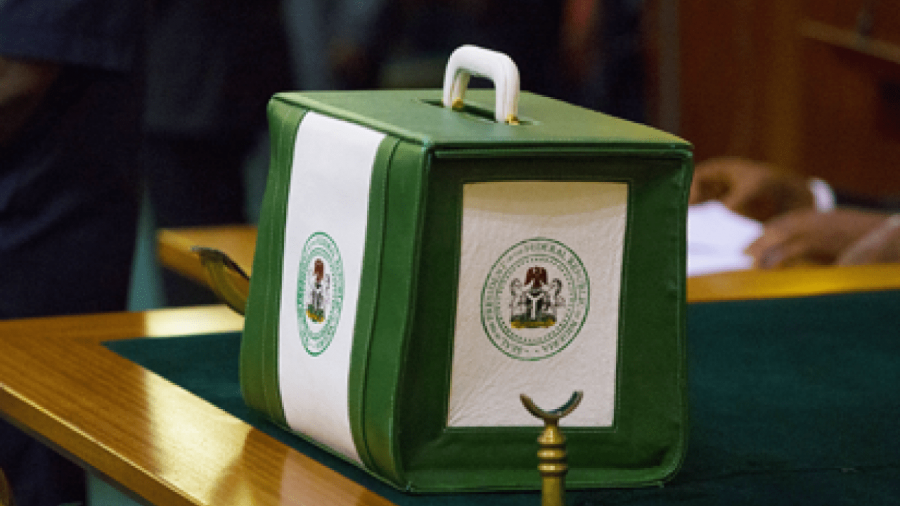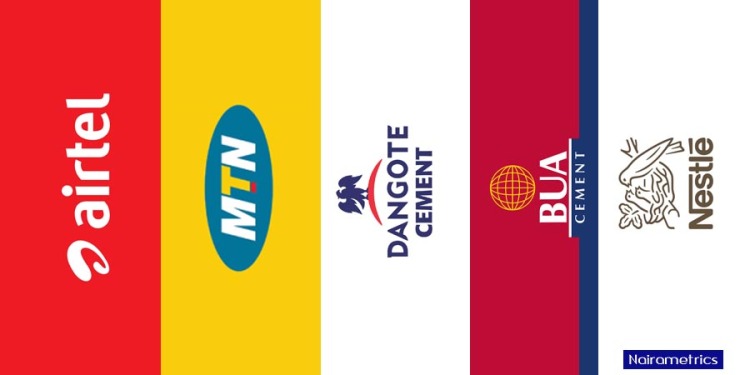The proposed FGN budget of N13.08trillion for the 2021 fiscal year tagged the “Budget of Economic Recovery and Resilience” was presented to the National Assembly on Thursday, October 8, 2020.
The realization of the budget is expected to accelerate the pace of our economic recovery, promote economic diversification, enhance competitiveness and ensure social inclusion. The budget represents an increase of 27% from the approved N10.3 trillion FGN budget for 2020.
The parameters & fiscal assumptions underpinning the 2021 appropriation
- Benchmark oil price of 40 US Dollars per barrel.
- Daily oil production estimate of 1.86 million barrels (inclusive of Condensates of 300,000 to 400,000 barrels per day).
- Exchange rate of N379 per US Dollar.
- GDP growth projected at 3.0 percent.
- Inflation closing at 11.95 percent.
FG revenue estimates
- Total distributable revenue is estimated at N8.433 trillion.
- Total revenue available to fund the 2021 Federal Budget is estimated at N7.886 trillion. This includes Grants and Aid of N354.85 billion, as well as the revenues of 60 Government-Owned Enterprises.
- Oil revenue is projected at N2.01 trillion.
- Non-oil revenue is estimated at N1.49 trillion.
Of the total revenue available to fund the budget, the projected oil revenue accounts for 25.5% while non-oil revenue accounts for 18.9%.
The planned 2021 expenditure
An aggregate expenditure of N13.08 trillion is proposed for the Federal Government budget in 2021. This includes N1.35 trillion spending by Government-Owned Enterprises and Grants and Aid funded expenditures of N354.85 billion.
- Non-debt Recurrent Costs of N5.65 trillion (43% of the budget).
- Personnel Costs of N3.76 trillion (29% of the budget).
- Pensions, Gratuities and Retirees’ Benefits of N501.19 billion.
- Overheads of N625.50 billion.
- Debt Service of N3.124 trillion (24% of the budget).
- Statutory Transfers of N484.49 billion.
- Sinking Fund of N220 billion (to retire certain maturing bonds).
Of the total proposed 2021 budget of N13.08 trillion, non-debt recurrent expenses accounts for 43% (N5.65 trillion). The cost of governance remains a cause for concern, as FG personnel costs, pensions and gratuities account for 33% of the budget, i.e. N4.262 trillion.
To service its debt obligations, the FG would be spending as much as 24% of the budget (N3.124 trillion), representing an increase of N445.57 billion from N2.68 trillion in 2020. Debt service obligation of N3.124 trillion, a total of N2.183 trillion (70%) has been set aside to service domestic debts, while N940.89 billion (30%) has been provided for foreign debt service. N220 billion is provided for transfers to the Sinking Fund to pay off maturing bonds issued to local contractors and creditors.
Fiscal balance
A budget deficit (inclusive of Government Owned Enterprises and project-tied loans), is projected at N5.20 trillion. This represents 3.64 percent of estimated GDP, slightly above the 3 percent threshold set by the Fiscal Responsibility Act, 2007.
The deficit is expected to be financed mainly by new borrowings totaling N4.28 trillion, N205.15 billion from Privatization Proceeds and N709.69 billion in drawdowns on multilateral and bilateral loans secured for specific projects and programmes.
Statutory transfers
The sum of N484.49 billion provided for Statutory Transfers in the 2021 Budget represents an increase of N56.46 billion (or 13 percent) over the revised 2020 provision. The Statutory Transfer provisions are made as follows;
- Niger Delta Development Commission – N63.51 billion.
- North East Development Commission – N29.70 billion.
- National Judicial Council – N110.00 billion.
- Universal Basic Education Commission – N70.05 billion.
- Independent National Electoral Commission – N40.00 billion.
- National Assembly – N128.00 billion.
- Public Complaints Commission – N5.20 billion.
- Human Rights Commission – N3.00 billion.
- Basic Health Care Provision Fund – N35.03 billion.
Of the total budget for statutory transfers, the National Assembly got the highest allocation of 26%, followed by National Judicial Council -23%, Universal Basic Education Commission – 14%, NDDC -13%, etc. The Public Complaints Commission and Human Rights Commission got the least -1% each.
Recurrent expenditure
A major part of the 2021 recurrent cost estimate of 37% of the budget (N4.888 trillion) is allocated to paying salaries and overheads. The recurrent expenditures (i.e. Salaries, Pensions, Gratuities and Retirees’ Benefits and overheads) for the MDAs providing critical public services include;
- N227.02 billion for the Ministry of Interior;
- N441.39 billion for the Ministry of Police Affairs;
- N545.10 billion for Ministry of Education;
- N840.56 billion for Ministry of Defence; and
- N380.21 billion for Ministry of Health.
The Ministry of Defence (17%), followed by Ministry of Education (11%), and Ministry of Police Affairs (9%) got huge shares of the budget allocation.
Capital expenditure
An aggregate sum of N3.85 trillion is being provided for capital projects as follows;
- N1.80 trillion for MDAs’ capital expenditure.
- N745 billion for Capital Supplementation.
- N355 billion for Grants and Aid-funded projects.
- N20 billion for the Family Homes Fund.
- N25 billion for the Nigeria Youth Investment fund.
- N336 billion for 60 Government Owned Enterprises.
- N247 billion for capital component of Statutory Transfers.
- N710 billion for projects funded by Multi-lateral and Bi-lateral loans.
The capital budget allocation is N1.16 trillion higher than the 2020 provision of N2.69 trillion. At 29% of aggregate expenditure, the provision moves closer to the Administration’s policy target of 30%.
Highlights of the 2021 capital projects
The key capital spending allocations in the 2021 Budget include;
- Power – N198 billion (inclusive of N150 billion for the Power Sector Recovery Plan);
- Works and Housing – N404 billion.
- Transportation – N256 billion.
- Defence – N121 billion.
- Agriculture and Rural Development – N110 billion.
- Water Resources – N153 billion.
- Industry, Trade and Investment – N51 billion.
- Education – N127 billion.
- Universal Basic Education Commission – N70 billion.
- Health – N132 billion.
- Zonal Intervention Projects – N100 billion.
- Niger Delta Development Commission – N64 billion.
The major chunk of the budget allocation for key capital projects goes to Works and Housing, followed by Transportation, Power, Water Resources, Health, Education, Defence, Agriculture, etc.
The 157% increase in the capital allocation to the health sector over the 2020 sectorial allocation is to enhance their capacity to deliver healthcare services through the procurement of requisite equipment, vaccines, and other facilities.
Government Fiscal Strategy in 2021
The government is aggressively implementing several and robust measures to overcome fiscal constraints that could impair on full budget realization.
The government shall be leveraging on technology and automation in the monitoring and management of Independently Generated Revenues towards addressing revenue leakages and redirecting scarce resources to the poor and vulnerable. These efforts include;
- Deregulation of the price of petroleum products.
- Ongoing verification exercise with IPPIS.
- Implementation of service-based electricity tariffs.
With the deregulation of the price of petroleum products, the new petrol pricing regime is expected to free up resources that were hitherto allocated to subsidize petroleum products. Similarly, the ongoing IPPIS verification exercise has closed gaps that encourage ghost workers or pensioners.
The service reflective electricity tariffs will help resolve liquidity crisis in the power sector and make the sector attractive to foreign investment. These reforms are expected to release trillions of Naira for allocation to other priority areas.





















Good presentation. But I will suggest you deployed infographics in addition to number data. The visual effects of infographics cannot be compared with number-based presentations.